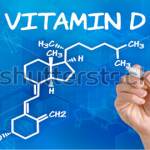“There is little evidence to support many diets and nutritional supplements that have been touted to be useful in reducing psoriasis,” Dr. Armstrong stressed. “Thus, while certain diets can be helpful in selected patients, it is the medical therapies that make the larger difference.”
Dr. Daniel Aires, a dermatologist at the University of Kansas Health System, said in an email to Reuters Health, “Nutritional guidelines can be helpful. Furthermore, there is very little harm in trying most of these interventions, such as reducing weight if overweight, taking vitamin D, eating a Mediterranean diet, and supplementing with high quality fish oil.
However, like Dr. Armstrong, he said that “patients with psoriasis in skin and joints should not expect dietary modification to replace medical therapy.”
“Few of us get enough sun or drink enough milk, so (in our practice) we recommend vitamin D supplementation for nearly all patients who don’t have contraindications such as kidney stones,” said Dr. Aires, who was not involved in developing the recommendations.
“I have seen many patients take off and keep off weight with low-carbohydrate diets,” he noted. “For fish oils I recommend high quality supplements that need to be refrigerated.”
“Patients appreciate dietary counseling as part of a complete program, including medications and lifestyle changes that also include exercise and stress reduction,” Dr. Aires concluded.
Resource
- Ford AR, Siegel M, Bagel J, et al. Dietary Recommendations for Adults With Psoriasis or Psoriatic Arthritis From the Medical Boardof the National Psoriasis Foundation: A Systematic Review. JAMA Dermatology. 2018 Jun 20. [Epub ahead of print]

